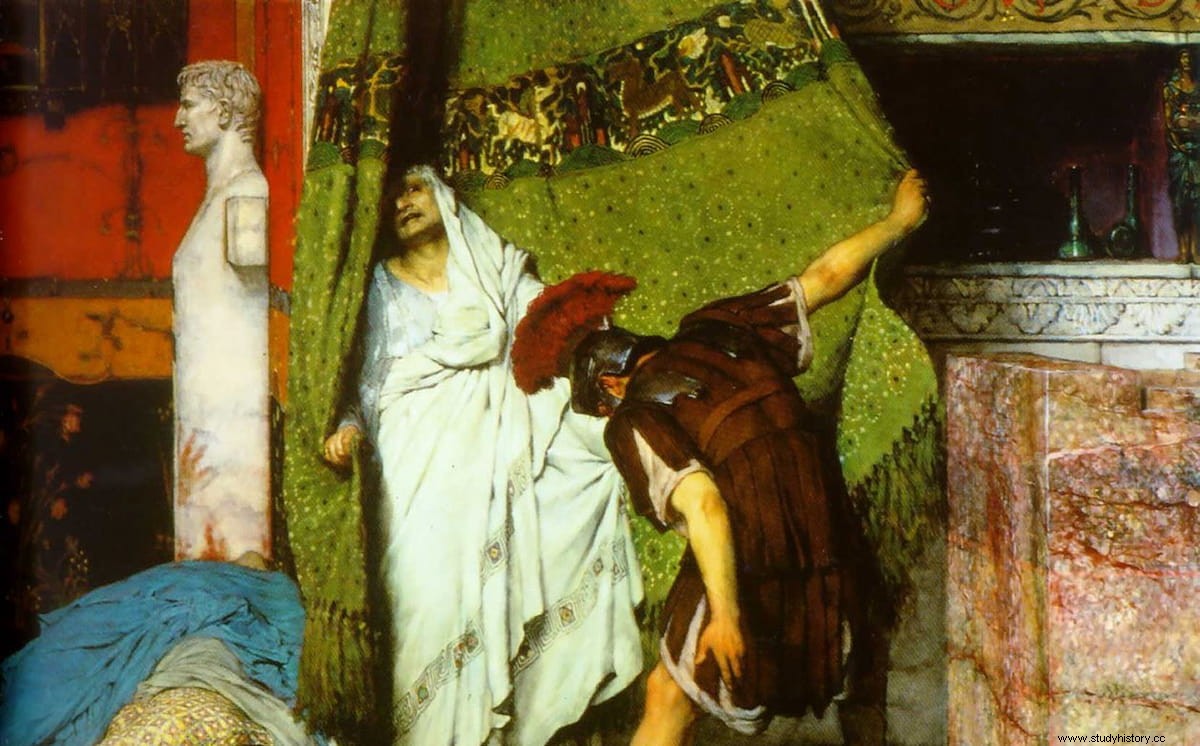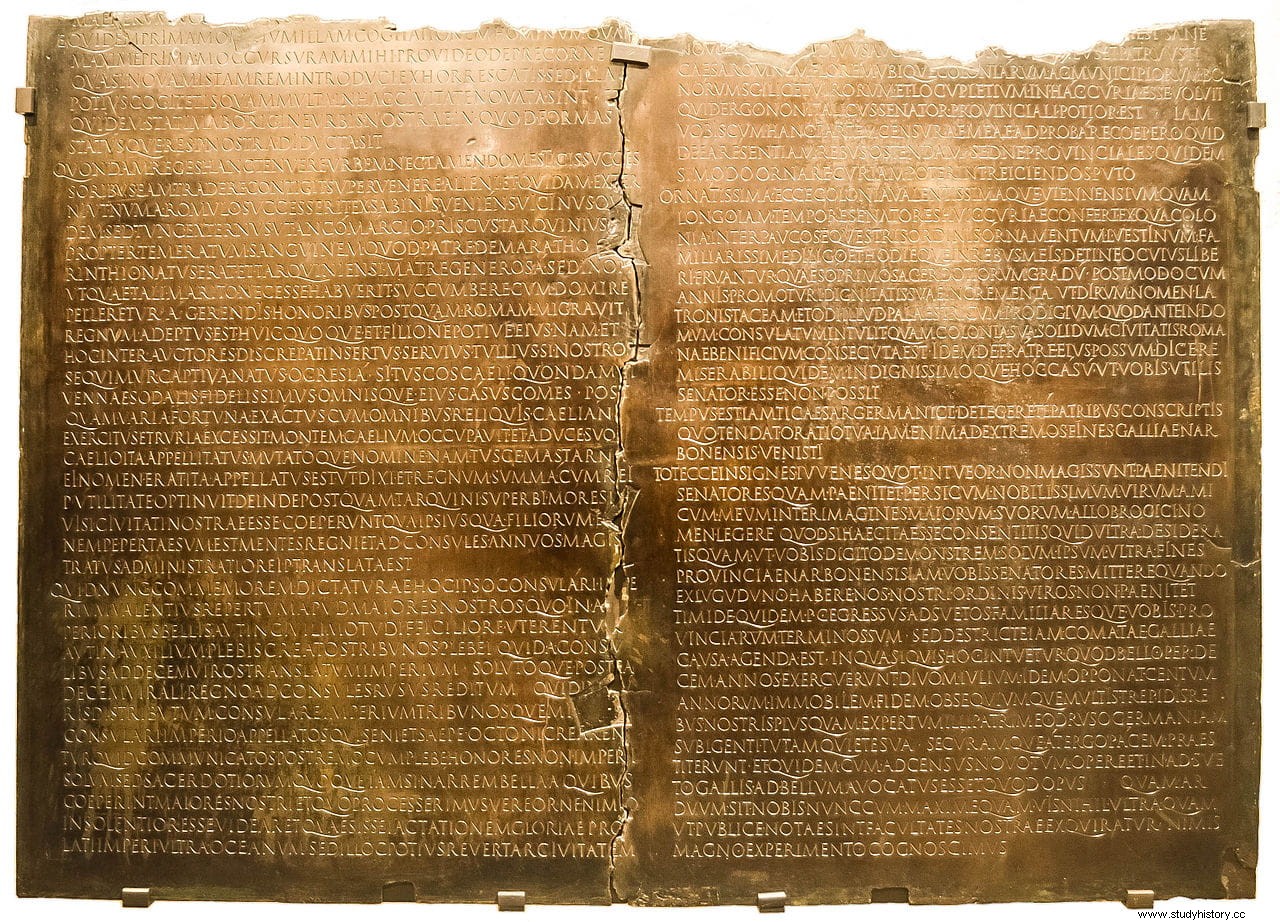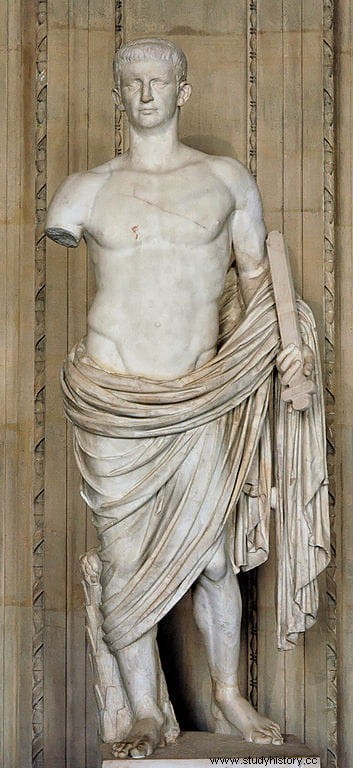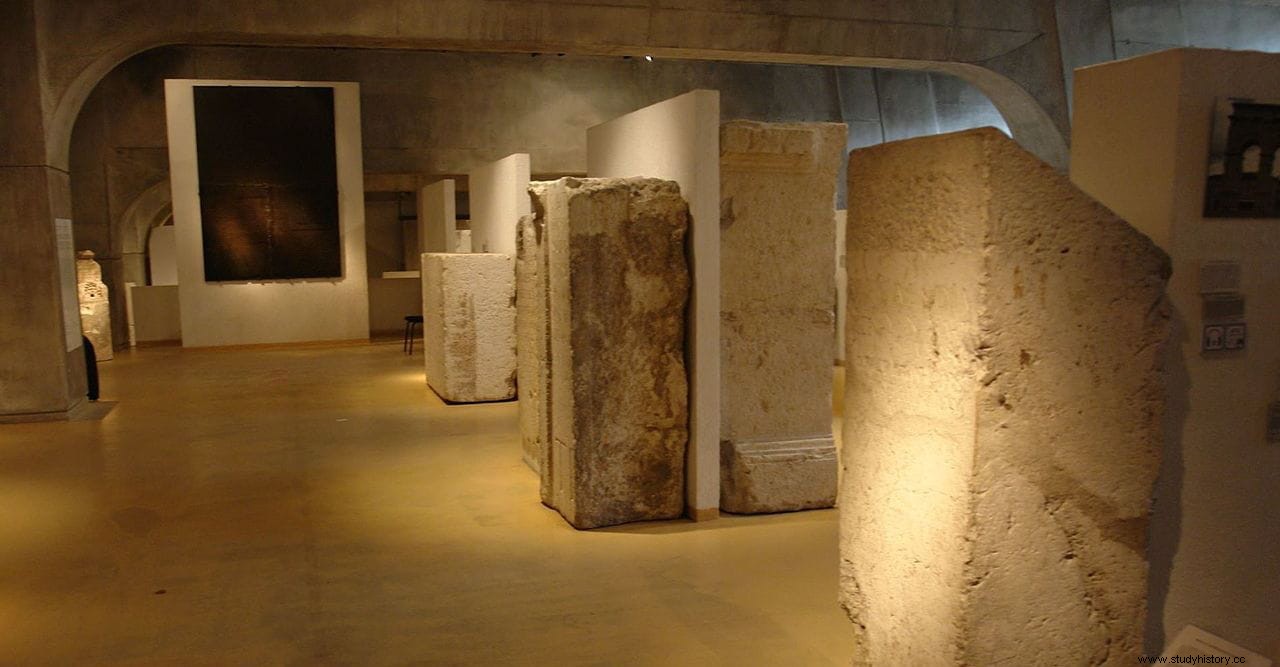Tiberius Claudius Caesar Augustus Germanicus, known simply as Claudius, was the fourth Roman emperor (after Caligula). He was born in Lugdunum, present-day Lyon in France, in 10 BC, where his father was stationed as a military legate, thus becoming the first Roman emperor born outside the Italian peninsula (although of Sabine Italic origin).
Before being proclaimed emperor by the Praetorian Guard in 41 AD. Claudius was engaged in writing historical works, and even an Etruscan dictionary. All of them, which included a history of the Carthaginians and the Phoenicians, a treatise on the game of dice, and an autobiography, have been lost.
The time of Claudio was the one of greater expansion of the empire after Augusto. In the census of the year 48 a total of 5,984,072 Roman citizens were counted, approximately an increase of one million since the death of the first emperor.

Claudius contributed to this increase by founding colonies to which Roman citizenship was granted, either from existing communities or by creating others in the new territories or on the borders of the empire.
It would be precisely in Lyon (on the site of the Sanctuary of the Three Gauls, erected in 12 AD by Claudius' father, Drusus the Elder) that a bronze tablet was discovered in 1528 containing the transcript of one of Claudius' speeches in the Roman Senate. But not just any speech, but one in which the emperor pronounces himself in favor of granting the Gauls Roman citizenship, including access to the magistracies and the Senate itself.

Since Claudius was born there and Lyon (Lugdunum) was the center of his imperial cult, it is possible that the city itself had the bronze tablet created as a commemoration. It is 1.93 meters wide by 1.39 high and weighs 222.5 kilograms. The text of the speech, in Latin, is divided into two columns.
The speech in question had been delivered by Claudius in AD 48. In it he attended to a request from the Gallic leaders to obtain the same rights as Roman citizens, showing an unprecedented conception of universal empire hitherto unseen in the rulers of Rome.

Claudius proposed allowing wealthy citizens and landowners from Gaul Comata (which includes present-day France, Belgium and Holland) to enter the senatorial class, provided that they reached the necessary level of wealth. In his argument, he exposes his own Sabine origin and that of his family, the gens Claudia, as well as the recent promotion to senatorial rank of citizens of Gaul Narbonensis (southeastern France).
Showing his training as a historian, Claudio makes a long digression on the origins and primitive history of Rome, at the same time that the interpellations of some senators who demand that he get to the point are collected. . Interestingly, Tacitus offers a different version, although in general terms with the same conclusions, so it is believed that the version contained in the Lyon tablet may be an exact and literal copy of the original act of the Senate.

Finally the Senate approved Claudius' proposal, and the elite of Lugdunum had the speech put in writing as a token of their gratitude to him. Claudius is known to have subsequently visited his hometown twice, in AD 43 and 47.
Today the Claudian panel is exhibited in the Gallo-Roman museum in Lyon, where it occupies a prominent place as one of the most important ancient objects discovered in the city.
